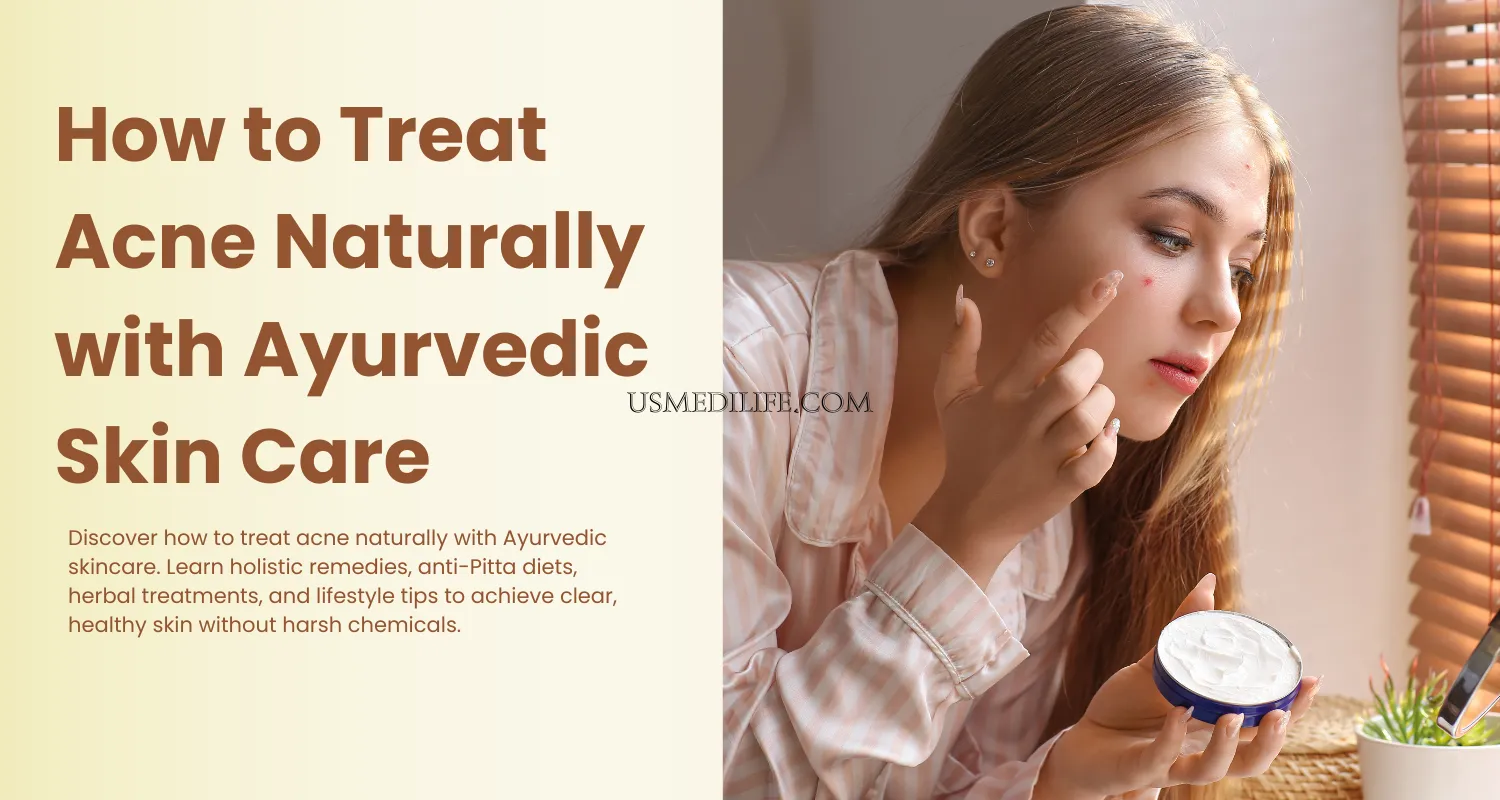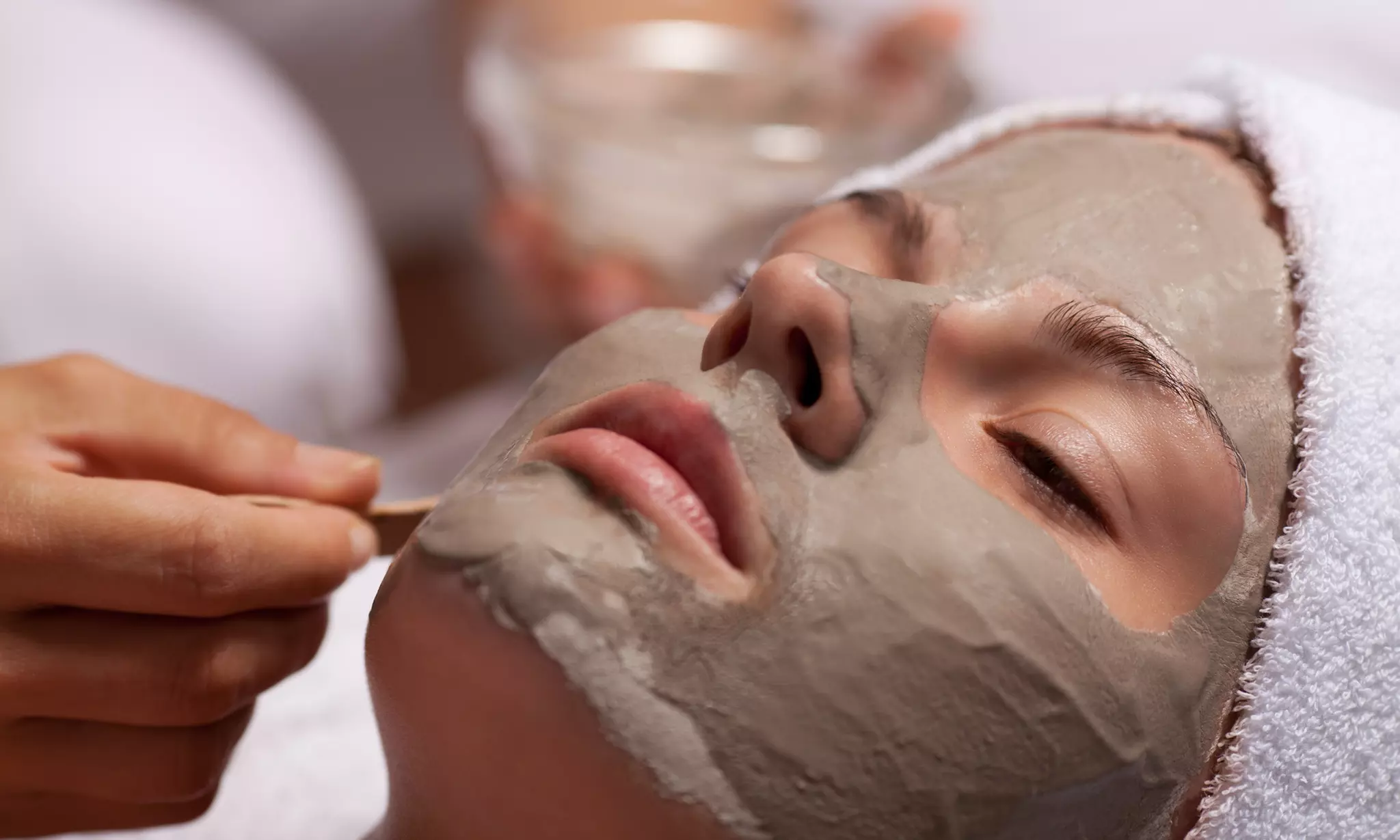
Dr. Ashwini
09-05-2025
How to Treat Acne Naturally with Ayurvedic Skin Care
Acne is a common skin concern that affects people of all ages, often causing frustration and impacting self-confidence. While modern treatments like chemical-based products or medications are widely used, they can sometimes be harsh on the skin or lead to side effects. Ayurveda, the ancient Indian system of holistic healing, offers natural, gentle, and effective solutions to treat acne by addressing the root causes and promoting overall skin health. In this blog, we’ll explore how to treat acne naturally using Ayurvedic skin care practices, including diet, lifestyle, and herbal remedies.
Understanding Acne Through Ayurveda
In Ayurveda, acne is often linked to an imbalance in the body’s doshas Vata, Pitta, and Kapha. Most acne cases are associated with an excess of Pitta dosha, which governs heat, metabolism, and digestion. When Pitta becomes aggravated due to poor diet, stress, or environmental factors, it can manifest as inflammation, redness, and acne on the skin. Additionally, an accumulation of toxins (ama) in the body due to improper digestion or lifestyle habits can clog pores and contribute to breakouts.
Ayurveda emphasizes restoring balance to the doshas, detoxifying the body, and nurturing the skin with natural remedies. Below are practical Ayurvedic strategies to treat acne naturally.
1. Follow an Anti-Pitta Diet
Diet plays a crucial role in managing acne in Ayurveda, as food directly influences Pitta and the body’s internal balance. To reduce acne, focus on cooling, calming, and detoxifying foods while avoiding those that aggravate Pitta.
Foods to Include:
-
Cooling vegetables: Cucumber, zucchini, leafy greens, and bitter gourd.
-
Hydrating fruits: Watermelon, pears, apples, and coconut.
-
Whole grains: Quinoa, basmati rice, and oats.
-
Herbs and spices: Coriander, fennel, mint, and turmeric (anti-inflammatory).
-
Healthy fats: Ghee (in moderation) and coconut oil.

Foods to Avoid:
-
Spicy foods: Chili, hot peppers, and excessive garlic.
-
Oily and fried foods: Fast food, deep-fried snacks, and processed junk.
-
Sour and acidic foods: Tomatoes, citrus fruits, and vinegar.
-
Excess sugar and dairy: Dairy can increase sebum production, worsening acne.
Tip: Drink plenty of water and herbal teas like chamomile or mint to stay hydrated and flush out toxins. A daily glass of aloe vera juice can also soothe inflammation and support digestion.
2. Adopt a Consistent Ayurvedic Skincare Routine
Ayurvedic skincare focuses on gentle cleansing, nourishing, and balancing the skin using natural ingredients. Here’s a simple routine to treat acne:
Step 1: Cleansing
Use a natural cleanser to remove dirt, oil, and impurities without stripping the skin. A mildly exfoliating paste can be made by combining turmeric, rose water, and chickpea flour (besan). Cleanse your face twice daily morning and night to keep pores clear.
Step 2: Toning
Apply rose water or sandalwood water as a toner to soothe inflammation and balance the skin’s pH. Rose water is cooling and reduces redness, making it ideal for acne-prone skin.
Step 3: Treatment Mask
Once or twice a week, apply an Ayurvedic face mask to detoxify and heal the skin. A popular recipe is:
-
Neem powder (1 tsp): Antibacterial and anti-inflammatory.
-
Multani mitti (fuller’s earth) (1 tbsp): Absorbs excess oil and unclogs pores.
-
Honey (1 tsp): Moisturizes and fights bacteria.
-
Rose water: To form a paste. Apply the mask for 15–20 minutes, then rinse with lukewarm water.

Step 4: Moisturizing
Even acne-prone skin needs hydration. Use aloe vera gel or kumkumadi oil (a traditional Ayurvedic facial oil) to nourish the skin without clogging pores. Apply a small amount to damp skin for best results.
Tip: Avoid over-cleansing or using harsh products, as they can aggravate Pitta and strip the skin’s natural oils, leading to more breakouts.
3. Use Ayurvedic Herbs for Acne
Ayurveda harnesses the power of herbs to treat acne internally and externally. Here are some of the most effective ones:
-
Neem: Known as the “village pharmacy,” neem has potent antibacterial and anti-inflammatory properties. Use neem powder in face masks or take neem capsules (consult an Ayurvedic practitioner) to purify the blood and reduce acne.
-
Turmeric: Its anti-inflammatory and antiseptic qualities help calm active breakouts and fade acne scars. Add turmeric to face masks or consume it in warm water or golden milk.
-
Manjistha: This herb detoxifies the blood and supports clear skin. It’s available in powder or capsule form and is excellent for chronic acne.
-
Triphala: A blend of three fruits, triphala aids digestion and detoxification, addressing the root cause of acne. Take it as a powder or tablet at night.
4. Practice Stress Management
Stress is a major trigger for acne, as it aggravates Pitta and disrupts hormonal balance. Ayurveda emphasizes calming the mind to promote clear skin. Incorporate these practices into your routine:
-
Meditation: Spend 10–15 minutes daily practicing mindfulness or deep breathing to reduce stress.
-
Yoga: Poses like Child’s Pose, Forward Bend, and Corpse Pose (Savasana) are calming and improve circulation to the skin.
-
Abhyanga (self-massage): Massage your body with cooling oils like coconut or sunflower oil to relax the nervous system and balance Pitta.
5. Optimize Your Lifestyle
A balanced lifestyle is key to preventing acne in Ayurveda. Follow these tips:
-
Sleep well: Aim for 7–8 hours of quality sleep to allow your body to repair and detoxify.
-
Exercise moderately: Engage in cooling exercises like swimming, walking, or yoga. Avoid intense workouts that generate excessive heat.
-
Maintain hygiene: Wash your face after sweating, use clean towels, and avoid touching your face frequently to prevent bacterial spread.
-
Detox regularly: Practice gentle detoxes, such as drinking warm water with lemon in the morning or doing a one-day mono-diet of kitchari (a rice and lentil dish), to clear ama from the body.

6. Be Patient and Consistent
Ayurvedic remedies work holistically, addressing the root cause of acne rather than just the symptoms. Results may take a few weeks to become noticeable, so consistency is key.Track your progress, adjust your routine as needed, and consult an Ayurvedic practitioner for personalized guidance if your acne persists.
Conclusion
Treating acne naturally with Ayurvedic skin care is about more than just clearing breakouts it’s about nurturing your body, mind, and skin from within. By following an anti-Pitta diet, adopting a natural skincare routine, using healing herbs, managing stress, and optimizing your lifestyle, you can achieve clearer, healthier skin without harsh chemicals. Embrace the wisdom of Ayurveda and let your skin glow with natural radiance!


